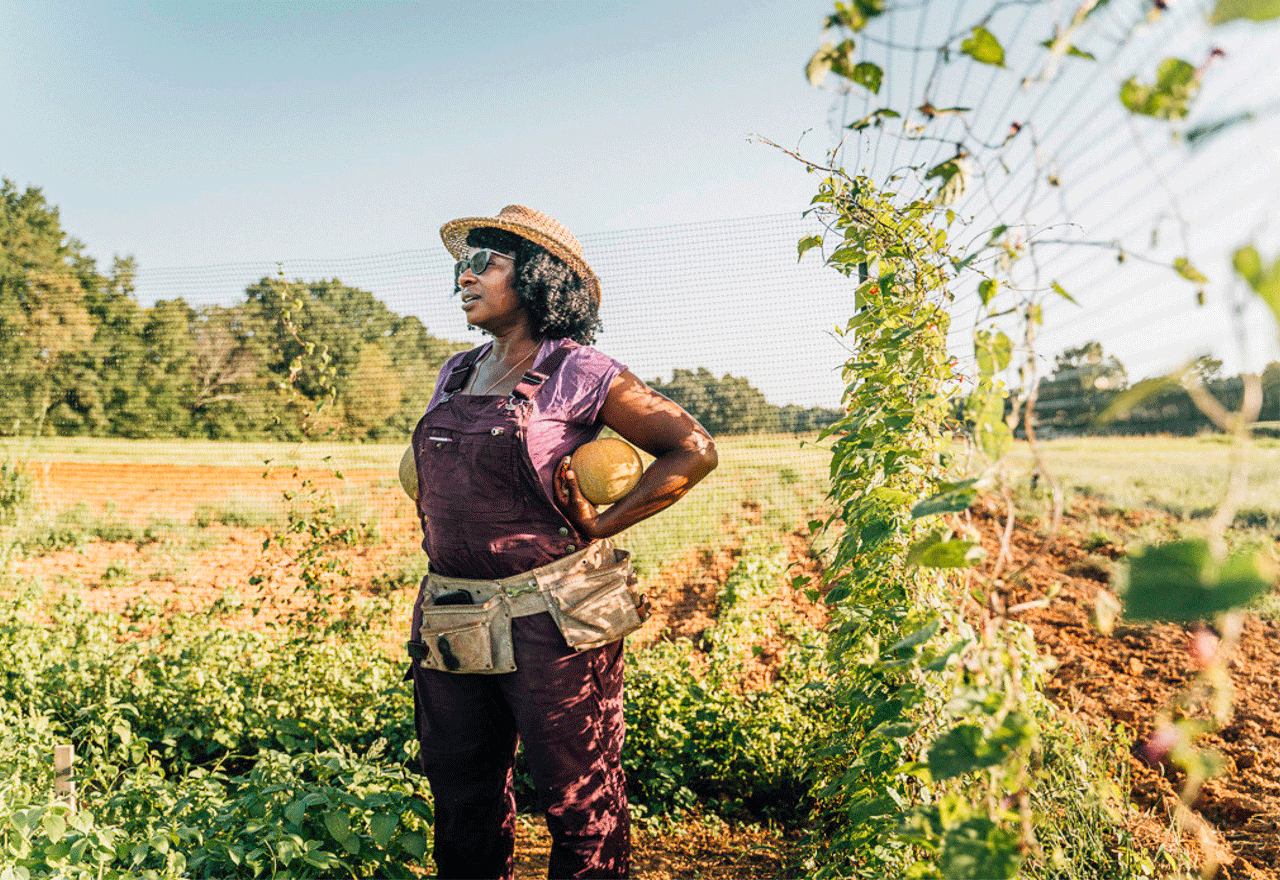Why ‘Farmer Cee’ is Investing in Organic Certification
Early one morning before most people had even poured their first cup of tea, Clarenda Stanley, known as “Farmer Cee,” set her phone on her dashboard and pressed record.
Her YouTube videos, useful for any beginning farmer, target Black female farmers returning to the land. Stanley speaks honestly about the funds and fortitude needed to grow a sustainable small farm and afford the type of investments that are often below ground. “It takes green to be green,” she quipped on the video, shot en route to a meeting for her second, off-farm job.
Sharing wisdom, whether through social media or her growing practices, is Farmer Cee’s calling. “We will encourage farmers to use the best ecological practices to protect soil health, maintain crop yields, and increase farm profitability,” she says. “By having a model farm, farmers are able to see firsthand how environmental stewardship can benefit a farm’s bottom line.”
On nearly 15 acres outside Raleigh, North Carolina, Stanley grows medicinal plants and herbs for Green Heffa Farms, which is focused on healing the land and providing high-quality teas. Those teas are processed in a restored sharecropper’s cabin built in the late 1800s.
Stanley is in the early stages of implementing an Organic System Plan, the foundation of the organic certification process. She views the paperwork, details, and hard work as vital steps in a learning process that will benefit her business, her family’s legacy, and the planet.
Raised by her maternal grandparents on an Alabama farm that thrived without harmful chemicals, she set her sights on the certification process from the moment she purchased her first seed.
“I opted to get the certification because I am a Black woman farmer in an agricultural system that was not designed for farmers like me to be a leader or in acknowledging the heritage knowledge of my ancestors.”
Stanley’s products are available online and at all Weaver Street Market locations.
This article was previously published in the summer issue of the Cultivator, Cornucopia’s quarterly newsletter. Donate today to protect organic integrity and receive our fall issue in print.


